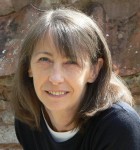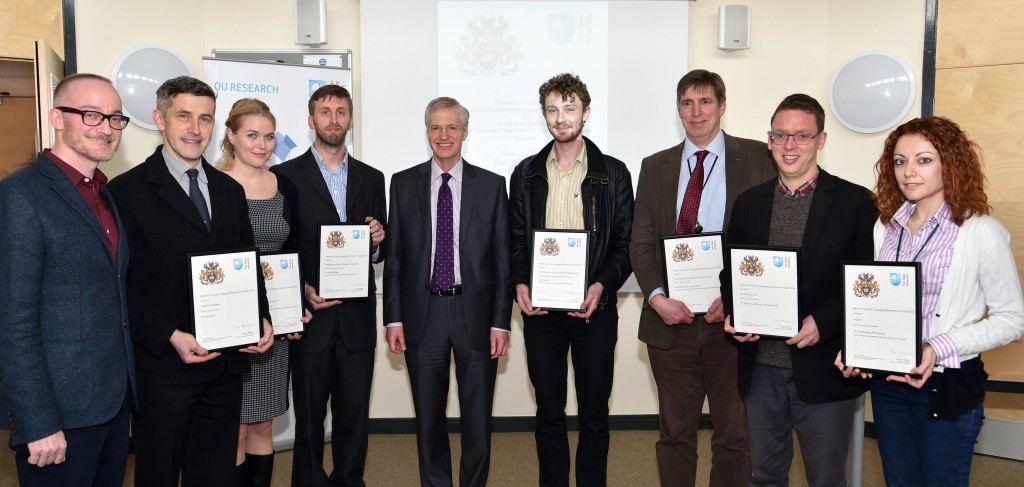
Dr Ann Grand, The Open University
Our seminar this month was a celebration of the diversity of engaging research at the Open University. To launch the second Engaging Research awards, we asked some of the winners of the inaugural awards to reflect on what ‘engaging research’ means for them in their research and practice.
The seminar was webcast world-wide, thanks to the skills of the KMI Podium team. You can watch the recording, featuring the five presentations, below. Here’s a summary of their contributions.
Christothea Herodotou‘s award recognised her work on the nQuire project, which aims to engage people – especially young people who lack interest in science and maths to set up and run their own investigations using mobile and web technologies. One of the aims of the project is to help people develop “a personal sense of wonder”. After her presentation, Christothea talked about the challenges of developing the project, for example developing a supportive community and just getting people to ‘have a go’.
Natalia Kucirkova is engaged with Booktrust in a Knowledge Transfer Partnership to develop criteria for evaluating digital resources and their use as pedagogic tools for literacy learning at home and school, and for her, developing partnerships to shape thinking together is highly important. Natalia is a prolific blogger; you can find her posts at blogs at The Conversation, Booktrust, Children’s Media Foundation and the Open University.

Winners of the inaugural Engaged Research Awards Scheme: l-r, Richard Holliman (Panel Chair), Joe Smith, Natalia Kucrirkova, John Maiden, Tim Blackman (PVC, RSQ), Peter Wood, David Gowing, Nick Mahony (representing Janet Fink and Jacqui Gabb) and Christothea Herotodou
Emma Rothero is a member of the Floodplain Meadows Partnership. She talked about the relationship between research, communication and measuring the impact of research. Emma is currently working with site managers to trace the links between advice they receive from the Partnership and outcomes in terms of plant and animal diversity in their meadows. These aspects of the project were not necessarily something the partnership set out to do, so are an interesting example of how engaged research can adapt and change to meet new challenges.
John Maiden‘s award recognised his work with the Building on History project. This project aimed to promote conversations about London’s rich and diverse religious heritage and work with faith groups to develop self-understanding through historical insight. Building on History has worked with a wide array of communities and developed resources that communities can draw on to support their own history projects.
Finally Jacqui Gabb discussed her experiences with the Enduring Love project, which sought to develop our understanding of long-term adult relationships, how they work and the work that goes into sustaining them. She touched on the importance of drawing on and making use of the diverse skills and expertise of colleagues and partners in the project.
